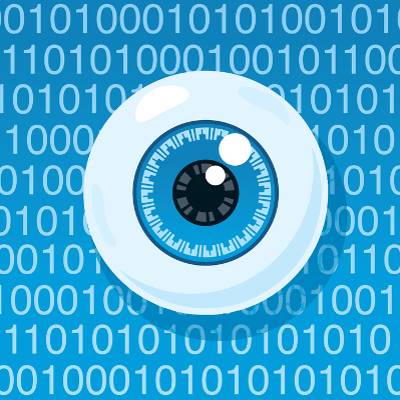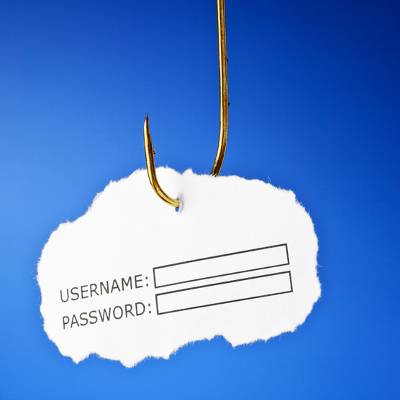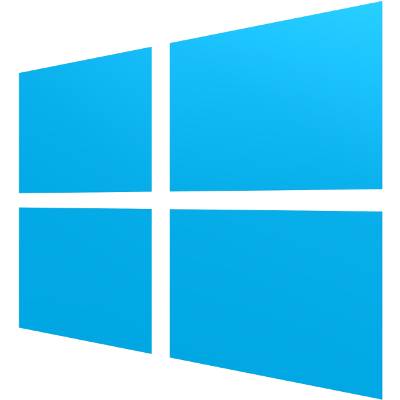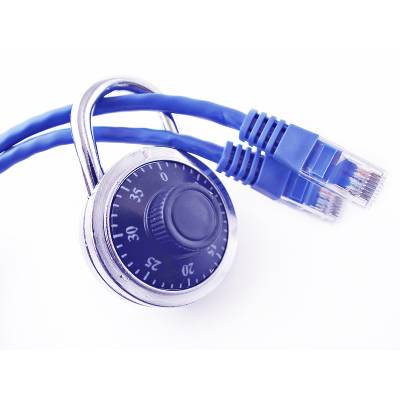Have any question?
Call (409) 861-4450
Call (409) 861-4450
 Crime might pay for those bold enough to do it, but that doesn't mean everyone should. Hackers likely don't take into account the fact that they are costing the world countless millions of dollars in damage only to further their own gain, and their influence can have far-reaching effects on people all over the world, let alone your business.
Crime might pay for those bold enough to do it, but that doesn't mean everyone should. Hackers likely don't take into account the fact that they are costing the world countless millions of dollars in damage only to further their own gain, and their influence can have far-reaching effects on people all over the world, let alone your business.
 How your business chooses to store its data is a major decision. You can implement a private cloud computing model and spend more on equipment and maintenance than you need to, or you can save money with a public cloud. Although, in light of the recent celebrity-nude-photo-iCloud hack, is the public cloud secure enough to host your company's data? Let's address this concern and explore your cloud computing options.
How your business chooses to store its data is a major decision. You can implement a private cloud computing model and spend more on equipment and maintenance than you need to, or you can save money with a public cloud. Although, in light of the recent celebrity-nude-photo-iCloud hack, is the public cloud secure enough to host your company's data? Let's address this concern and explore your cloud computing options.
 If 2014 hasn't been a legendary year for data breaches yet, it certainly is now. Community Health Systems, a hospital network for over 206 facilities across the United States, has been the target of a data breach resulting in 4.5 million records being compromised by Chinese hackers, including Social Security numbers, birthdays, names, addresses, and telephone numbers.
If 2014 hasn't been a legendary year for data breaches yet, it certainly is now. Community Health Systems, a hospital network for over 206 facilities across the United States, has been the target of a data breach resulting in 4.5 million records being compromised by Chinese hackers, including Social Security numbers, birthdays, names, addresses, and telephone numbers.
 All of the security breaches and vulnerabilities of 2014 sure have made for an interesting year; first Heartbleed, then the Internet Explorer vulnerability, GameOver Zeus, and the Russian password-stealing gang. In light of these events, you really have to ask the question, "how can we fight these threats?" Symantec has told The Wall Street Journal that they feel antivirus technology is "dead."
All of the security breaches and vulnerabilities of 2014 sure have made for an interesting year; first Heartbleed, then the Internet Explorer vulnerability, GameOver Zeus, and the Russian password-stealing gang. In light of these events, you really have to ask the question, "how can we fight these threats?" Symantec has told The Wall Street Journal that they feel antivirus technology is "dead."
 When it comes time to upgrade, many smartphone users will sell off their old device in hopes of making extra cash. However, if the phone's memory is improperly wiped, an experienced hacker can use advanced tools to recover sensitive data off the used phone. Let's talk about how this happens and what can possibly be recovered by a hacker.
When it comes time to upgrade, many smartphone users will sell off their old device in hopes of making extra cash. However, if the phone's memory is improperly wiped, an experienced hacker can use advanced tools to recover sensitive data off the used phone. Let's talk about how this happens and what can possibly be recovered by a hacker.
 The Hackers on Planet Earth (HOPE) conference which took place on Saturday, July 21st 2014, had an important panelist, that being Edward Snowden. Whether he's a whistleblower or a traitor is a hot topic on the web, but one thing is certain - he has called for assistance in creating and promoting anti-surveillance technology to mitigate government spying.
The Hackers on Planet Earth (HOPE) conference which took place on Saturday, July 21st 2014, had an important panelist, that being Edward Snowden. Whether he's a whistleblower or a traitor is a hot topic on the web, but one thing is certain - he has called for assistance in creating and promoting anti-surveillance technology to mitigate government spying.
 It has been two weeks since the National Communications Association warned the world about the GameOver Zeus and Cryptolocker ransomware, and if you haven't taken steps to avoid these threats, it's not too late - if you haven't been infected yet, do so as soon as possible. Otherwise, your network will be vulnerable, and so will your banking credentials.
It has been two weeks since the National Communications Association warned the world about the GameOver Zeus and Cryptolocker ransomware, and if you haven't taken steps to avoid these threats, it's not too late - if you haven't been infected yet, do so as soon as possible. Otherwise, your network will be vulnerable, and so will your banking credentials.
 Does your company have dedicated antivirus software to protect it against the annoying threats on the Internet? Sometimes, a computer virus can weasel its way past your software, but there's no greater frustration than when you realize that the reason you contracted a virus is because an employee disabled your software. Don't let this happen to you!
Does your company have dedicated antivirus software to protect it against the annoying threats on the Internet? Sometimes, a computer virus can weasel its way past your software, but there's no greater frustration than when you realize that the reason you contracted a virus is because an employee disabled your software. Don't let this happen to you!
 If your wireless router is an archaic piece of machinery from the turn of the century, you owe it to yourself to upgrade to something a little less dusty. Depending on your Internet connection, increasing your bandwidth is a tricky matter, and the easiest way to do so is by upgrading your wireless router. These next-gen routers are simple to use and don't require passwords; something that both increases network security and ease of use.
If your wireless router is an archaic piece of machinery from the turn of the century, you owe it to yourself to upgrade to something a little less dusty. Depending on your Internet connection, increasing your bandwidth is a tricky matter, and the easiest way to do so is by upgrading your wireless router. These next-gen routers are simple to use and don't require passwords; something that both increases network security and ease of use.
 The Internet is a vast ocean filled with all sorts of different creatures. Many are harmless, like the bottlenose dolphin, but once in a while you will encounter an aggressive shark. But no matter how powerful or intelligent these creatures are, they still wind up flopping around on the deck of some fisherman's boat. Why? Because fishermen know what they're looking for and how to capture it. The same can be said about Internet phishers.
The Internet is a vast ocean filled with all sorts of different creatures. Many are harmless, like the bottlenose dolphin, but once in a while you will encounter an aggressive shark. But no matter how powerful or intelligent these creatures are, they still wind up flopping around on the deck of some fisherman's boat. Why? Because fishermen know what they're looking for and how to capture it. The same can be said about Internet phishers.
 A new botnet threat could spell "game over" for unaware Windows users - the threat targets almost all versions of Windows and Windows Server (excluding Windows 8.1). Even though the Department of Homeland Security, Federal Bureau of Investigation, and Department of Justice have disrupted it, users are still at risk. Thankfully, they still have time - two weeks, until the threat returns.
A new botnet threat could spell "game over" for unaware Windows users - the threat targets almost all versions of Windows and Windows Server (excluding Windows 8.1). Even though the Department of Homeland Security, Federal Bureau of Investigation, and Department of Justice have disrupted it, users are still at risk. Thankfully, they still have time - two weeks, until the threat returns.
 In light of all of the recent vulnerabilities found in Microsoft's Internet Explorer browser and Windows XP operating system, owners of XP are growing nervous about the upcoming "patch Tuesday," Microsoft's monthly patch release day. But, what if what Microsoft isn't patching in the newer operating systems is what needs to be patched the most in XP?
In light of all of the recent vulnerabilities found in Microsoft's Internet Explorer browser and Windows XP operating system, owners of XP are growing nervous about the upcoming "patch Tuesday," Microsoft's monthly patch release day. But, what if what Microsoft isn't patching in the newer operating systems is what needs to be patched the most in XP?
 Don't trust anything you can't see - a valuable lesson for anyone. But, why shouldn't you trust your own phone? Egyptian programmer Sherif Hashim has discovered a vulnerability in the most recent version of iOS (7.1.1) that allows hackers to physically access your contacts without unlocking your phone.
Don't trust anything you can't see - a valuable lesson for anyone. But, why shouldn't you trust your own phone? Egyptian programmer Sherif Hashim has discovered a vulnerability in the most recent version of iOS (7.1.1) that allows hackers to physically access your contacts without unlocking your phone.
 In today's connected home, Internet security needs to extend beyond the PC. Any device that's connected to the Internet needs to be password protected, secured with a firewall, and utilize available security apps. These precautions should be taken even with seemingly harmless devices like baby monitors. A family from Ohio recently learned this lesson the hard way.
In today's connected home, Internet security needs to extend beyond the PC. Any device that's connected to the Internet needs to be password protected, secured with a firewall, and utilize available security apps. These precautions should be taken even with seemingly harmless devices like baby monitors. A family from Ohio recently learned this lesson the hard way.
 Fifteen years ago, a simple oversight in technology development caused worldwide panic. The crisis was Y2K, and the fear was that, on New Year's Eve, computers would reset to 1900 instead of 2000, causing all technology to fail. Thankfully, New Years Eve came and went without incident and people got worked up over nothing. You've heard story, but you may not have heard about all the work IT companies did to save the day!
Fifteen years ago, a simple oversight in technology development caused worldwide panic. The crisis was Y2K, and the fear was that, on New Year's Eve, computers would reset to 1900 instead of 2000, causing all technology to fail. Thankfully, New Years Eve came and went without incident and people got worked up over nothing. You've heard story, but you may not have heard about all the work IT companies did to save the day!
 Across the galaxy, Star Wars fans will be celebrating their beloved science fiction franchise on May 4th (May the fourth be with you). One of the most fascinating aspects about Star Wars is its space technology. As cool as lightsabers and blasters are, Star Wars tech can break down just like our modern space technology. Concerning technology repair, we think troubleshooting space tech in our day can be just as exciting as repairing space technology "a long time ago in a galaxy far, far away."
Across the galaxy, Star Wars fans will be celebrating their beloved science fiction franchise on May 4th (May the fourth be with you). One of the most fascinating aspects about Star Wars is its space technology. As cool as lightsabers and blasters are, Star Wars tech can break down just like our modern space technology. Concerning technology repair, we think troubleshooting space tech in our day can be just as exciting as repairing space technology "a long time ago in a galaxy far, far away."
Get the Knowledge You Need to Make IT Decisions
Technology is constantly evolving, and keeping up can feel overwhelming. Whether you want to understand cybersecurity threats, explore automation, or learn how regulations like PCI DSS impact your business, we’ve made it easy to access clear, straightforward insights on key IT topics.
Learn more about what NetWorthy Systems can do for your business.
NetWorthy Systems
701 W. Division Ave Suite 100
Orange, Texas 77630